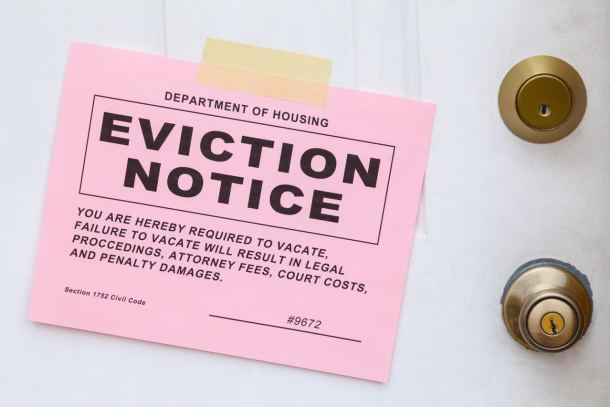By Joe W. Bowers Jr. and Edward Henderson | California Black Media
(CBM) – Your roundup of stories you might have missed last week.
In Memoriam: Charles Ogletree, Celebrated Harvard Law Professor, Native Californian, Civil Rights Champion and Mentor to the Obamas

Charles J. Ogletree Jr., a renowned Harvard Law professor who was born in California’s Central Valley, passed away at his home in Odenton, Md., Aug. 4, after battling Alzheimer’s disease.
Ogletree, who was 70, rose from a humble and impoverished childhood in Merced where his parents worked as seasonal farm laborers. Affectionately known as “Tree”, he picked cotton, almonds and peaches as a kid.
The Merced County courthouse was renamed after him in February in recognition of his contributions to law, education and civil rights.
A member of the A.M.E. Church, Ogletree attended Stanford University, where he immersed himself in political activism, leading the Black Student Union and editing a Black student newspaper. Graduating from Stanford with an M.A. and B.A. (with distinction) in Political Science, he later earned a J.D. from Harvard Law School.
After finishing law school, Ogletree become a celebrated public defender in Washington DC and an attorney representing high-profile clients such as John A. Gotti, Tupac Shakur, and Anita Hill during her sexual harassment accusation against U.S. Supreme Court nominee Clarence Thomas.
As a Harvard Law School professor, Ogletree brought a clinical focus to the institution, emphasizing legal theory while also increasing the faculty’s diversity. He mentored numerous students, including Barack and Michelle Obama.
Obama posted on X, formerly known as Twitter, “Michelle and I are heartbroken to hear about the passing of our friend Charles Ogletree. He was an advocate for social justice, an incredible professor, and a mentor to many – including us. Our thoughts are with his wife Pamela, his entire family, and everyone who knew and loved this remarkable man.”
As an advocate for justice, Ogletree was involved in numerous groundbreaking cases and initiatives that centered on race, class, and criminal justice. He founded Harvard’s Criminal Justice Institute, which provides legal representation for underprivileged clients in the Boston area. Additionally, he established the Charles Hamilton Houston Institute for Race & Justice, named after the civil rights lawyer who taught Thurgood Marshall.
Ogletree’s commitment to racial equality and addressing historical injustices was evident in his tireless quest for justice and financial redress for the survivors of the 1921 Tulsa race massacre and the descendants of enslaved people.
Beyond his legal work, Ogletree was an accomplished author and legal commentator writing extensively on capital punishment, life without parole, and police conduct in minority communities.
Charles J. Ogletree Jr. is survived by his wife, Pamela Barnes, two children, Charles J. Ogletree III and Rashida Ogletree-George, as well as siblings, grandchildren, and countless grateful students and admirers.
Doctors Sue California Medical Board to Halt Implicit Bias Training
A group of doctors have filed a lawsuit against the Medical Board of California to halt a state requirement that mandates physicians study how implicit biases, including racial preconceptions, affect how they treat patients.
Assembly Bill (AB) 241, a law passed in 2019, requires medical professionals to study implicit bias as part of the 50 hours of continuing education required every two years for licenses.
The law states that “evidence of racial and ethnic disparities in health care are remarkably consistent,” noting that Black women are “three to four times more likely than White women” to die from pregnancy-related causes. Black patients “often are prescribed less pain medication than White patients who present the same complaints.”
Black patients with heart symptoms are referred for advanced cardiovascular procedures less often than white patients with the same symptoms.
The plaintiffs in the suit are Dr. Marilyn Singleton, a Black anesthesiologist, Dr. Azadeh Khatibi, an ophthalmologist, and a Virginia nonprofit called Do No Harm.
“I reject the unscientific accusation that people are defined by their race, not by their individual beliefs and choices,” Dr. Singleton wrote in a Washington Post opinion. “When we all took our oath to ‘first, do no harm’ we meant it, and we live it. I can’t imagine spending my entire career thinking my peers can’t uphold that oath without constant racial reeducation.”
Report Details Injustices Some Renters in Alameda Face

Tenants’ rights advocates believe that renters in some of Alameda County’s unincorporated areas need housing protections. Those places include the area formerly known as “Eden Township” where Hayward and San Leandro are currently located.
A new report released by My Eden Voice, a coalition of East Bay housing organizations in collaboration with other advocates, sheds light on injustices renters in Alameda County’s urban unincorporated areas face daily.
It includes four key findings:
Renters face widespread and severe habitability issues, threatening the health of families. Rents in the Eden Area are rising, leaving long-term residents in fear of losing their homes. When faced with verbal harassment, many tenants self-evict. And families living in single-family homes are left out of protections from state regulations.
The report also lists recommendations to alleviate these issues. A proactive rental inspection program, local just cause protections, increasing legal aid funding to reduce wait times, a rental registry to enforce tenant protections, establishing a rent board to enforce existing law, and enacting a strong local rent stabilization policy.
According to the report, Eden communities have an 18% poverty rate and over 61% of people in the urban unincorporated areas are Black, Indigenous, or people of color.
“We are aware that the conditions in the unincorporated area have been a great concern to the community,” Alameda County’s housing director Michelle Starratt told the East Bay Times. “These are exactly the concerns we’ve heard.”
Gov. Newsom and Gov. DeSantis to Faceoff in Televised Debate

Last week, Florida Gov. Ron DeSantis responded to a debate challenge from Gov. Gavin Newsom. These two politicians have been diametrically opposed on various issues ranging from immigration reform to COVID-19.
During an appearance on Sean Hannity’s Fox News show, DeSantis accepted the debate challenge saying “absolutely, I’m game. Let’s get it done. Just tell me when and where. We’ll do it.”
Newsom proposed holding the debate on Nov. 8 or 10 in Nevada, Georgia or North Carolina. The debate would be broadcast live during a 90-minute segment on Fox News and would not have a live audience.
It would be moderated by Hannity and each governor will have 90 seconds to answer alternating questions. Each participant will also be allowed up to four minutes for opening remarks and two minutes for closing remarks.
Outcome of Lawsuit Against Critical Race Theory Ban Will Have Broad Implications in California
The Temecula Valley Unified School District is facing litigation over its ban of critical race theory.
The suit contends that the board’s ban violates the California Constitution’s guarantee of a “fundamental right” to an education that protects students from racial discrimination. It also claims the ban violates state laws mandating learning standards that include discussions about racism, inequality and how past events are relevant in the present day.
Critical race theory is an examination of how racial inequality and racism are systematically imbedded in United States’ institutions. The suit was filed on behalf of Temecula students, parents, teachers and the local teacher’s union by the public-interest law firm Public Council and the law firm Ballard Spahr.
Students and teachers from the district have expressed their concern how the lack of open discourse concerning race and systematic racism could stifle learning and growth.
If the suit overturns the ban, a domino effect could occur as attorneys in other states are exploring similar litigation. Thirty-six states have restricted education on racism, bias, or the contributions of specific racial or ethnic groups to U.S. history.
Support Our Work
Independent journalism needs YOUR support to survive and thrive. Help us achieve our mission of creating a more informed world by making a one-time or recurring donation today.



